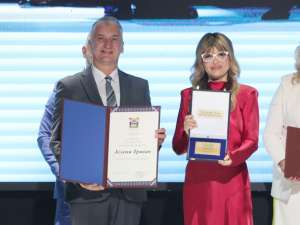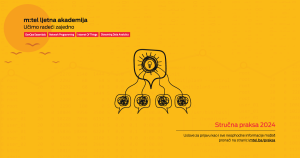SARAJEVO, October 30 (FENA) - Director of the Food Safety Agency of Bosnia and Herzegovina Džemil Hajrić says that the multi-year average of analyzed food samples shows that about 95 percent of those samples meet the prescribed parameters.
"Considering that a significant share of inappropriate food samples belongs to laboratory analyses carried out within the process of self-control, that is, in the process of food production, we can say with certainty that, statistically speaking, the share of suitable food samples that were available to end consumers on the market is still higher - said Hajrić for Fena.
According to the data collected and consolidated by the Agency through the "Report on the results of laboratory analyses of food, occurrence and trends of diseases whose cause/route of transmission is food and reported cases of zoonoses for the year 2021", during that year a total of 47,614 food samples were processed, including drinking water, of which there were 5.63 percent of inappropriate samples. Excluding drinking water, out of 29,710 food samples analyzed for microbiological parameters, 686 (2.31 percent) were inadequate, while out of 6,711 food samples analyzed for physical and chemical parameters, 125 (1.86 percent) were inadequate.
In accordance with BiH's obligations in the process of accession to the European Union, and on the basis of the Progress Report prepared by the European Commission, our country should speed up preparations for national reference laboratories, through further alignment with the EU acquis, and above all by increasing the number of accredited laboratory methods that used in hygienic, veterinary and phytosanitary control, food analysis for humans and animals.
"With the aim of strengthening the capacity of laboratories for food analysis, in the past period, through international projects, the Agency secured the procurement of laboratory equipment worth a total of 2.1 million KM, and provided specialized training for laboratory personnel, which were carried out in reference laboratories of EU countries according to internationally recognized and validated methods.
The introduction of inter-laboratory comparative tests in order to increase the administrative capacities, especially of inspection services and laboratories, is one of the recommendations of the European Commission, which, among other things, implies the improvement of laboratory capacities, their better cooperation and connection," added Hajrić.
Compared to the multi-year average, according to him, there are no significant deviations in terms of the number of notifications received through the Rapid Alert System for Food and Animal Feed (EU RASFF).
(FENA) S. R.










